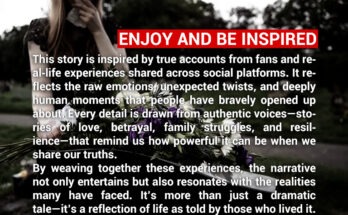I was thrilled when my grandson invited me to his engagement party. I’d raised him after his parents passed, and we shared a bond deeper than most. I wore my best dress, brought his favorite cookies, and looked forward to meeting the woman he chose. But from the moment I arrived, she barely acknowledged me. Her eyes skimmed past me like I was invisible. I tried to stay positive, assuming nerves. But the tension was palpable, and I felt like an outsider in a celebration I thought I’d helped make possible.
During dinner, I asked her about her family and work, trying to connect. She responded curtly, then turned to the table and said, “Some people just don’t know when to let go of outdated traditions.” Everyone laughed. I sat frozen, humiliated. My grandson looked down, clearly uncomfortable. I realized she was mocking me—my values, my presence. I’d never felt so disrespected, especially by someone who was supposed to become family.
I excused myself and went to the restroom, tears threatening to fall. I stared at my reflection, wondering what I’d done wrong. I’d always supported my grandson, never judged his choices. I’d hoped to be welcomed, not ridiculed. When I returned, no one noticed. My cookies sat untouched. I stayed quiet, waiting for the evening to end, counting the minutes until I could leave.
Later, I overheard her say, “She’s sweet, but I don’t want her influencing our kids with her old-school thinking.” That broke me. I’d poured my heart into raising my grandson with love and integrity. Now I was being dismissed as irrelevant. I left early, unnoticed, and cried the whole drive home. I didn’t want to cause drama, but I couldn’t pretend everything was fine.
The next day, my grandson called. He apologized, said he hadn’t expected her to behave that way. But I could hear the conflict in his voice. I told him I loved him, but respect isn’t negotiable. If she couldn’t honor the people who shaped him, what kind of future would they build? I didn’t demand anything—I just spoke my truth and let it sit.
Weeks later, he visited alone. He’d ended the engagement. “I realized I want someone who values the people who made me who I am,” he said. I hugged him, overwhelmed with pride and sorrow. I hadn’t wanted this outcome, but I was grateful he saw my worth. Sometimes, standing up for yourself means standing alone. And sometimes, that strength helps others find their own.


